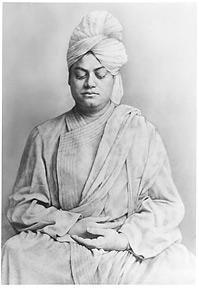Writing is a slow and steady skill that develops from extensive reading and an emotional connection. These below listed down are my thoughts on how writing shaped me and I will tell you how I craft the one.
Sustainability is important in writing.
Above all, life experience makes me a better writer! While I have always loved to read, I struggled with writing until I had been through several life experiences, both positive and negative, that left me holding on to a lot of emotion. There was no place for this emotion to go except onto the page, so onto the page (and another page, and another…) it went!
Being part of a writing community really encourages me to be a better writer—these days, that mostly happens through Twitter. When I publish short pieces, share them on Twitter and get responses from other writers and readers, it emphasizes the fact that I’m not dropping words into a vacuum—there are actual humans reading and responding to my work! This encourages me to always push myself to write better, to live up to the very high standards set by my fellow authors.
Reading, my first love, is the root of any talent I possess as a writer. I spent so much of my childhood and teen years lost in literary worlds, and all that reading helped me understand how to use language to tell a compelling story and to evoke emotion from readers. It also taught me to see everything—a myth or fairy tale, a crazy news story, a beautiful flower or a piece of trash on the street—as the potential inspiration for a story of my own. Reading teaches us to observe the world carefully, to see things through different perspectives, and if we become writers ourselves, to share these perspectives with readers.
I was more of a reader in my childhood
Compared to many writers, I probably did very little creative writing as a child. I always wanted to write stories, but I was also a perfectionist, so I would write a sentence or two, decide it wasn’t good enough and abandon it. Truth be told, I preferred reading to writing. I liked getting lost in other people’s worlds. Even in high school and college, I wrote stories for classes, but couldn’t motivate myself to write too much on my own time. I went on to attend graduate school for writing and wrote a few young adult novels—so my first stage of writing very intensely was in my mid to late twenties.
However, I still didn’t enjoy the process of writing, and I ended up taking a long break from writing while pursuing other jobs. As I mentioned above, it was going through a lot of emotional upheaval, including a difficult breakup and a lot of career changes, that made me want to return to writing. So in my thirties, I began writing again—first with a novel, and then with an explosion of poetry and creative nonfiction pieces. This was the first time I really felt like a writer—writing had become a cathartic experience for me, something I was compelled to do, a way to share my voice with the world.
As for my writing secrets? Well, the biggest secret of all may be that there are no secrets—writing is hard for everyone, and you have to find what works for you. But based on my own experience, I would say that the more emotional connection you feel to your writing, the more meaningful it will be for you and ultimately for readers.
At the beginning of the day, I write with a fresh mind
When I’m working on a longer writing piece, like a novel, or when I’m trying to finish a piece for a deadline, I always start writing as soon as I open my computer in the morning, before I do any other work. This way my freshest, most creative thoughts make it onto the page. Of course, often the real world and my freelance work intrudes, and I don’t have as much time to devote to writing as I would like. For me, what’s more helpful than having a fixed writing schedule is reminding myself that writing is just as important as work I’m getting a paycheck for. Occasionally, I have to give up sleep for writing, and I definitely give up a lot of movie or TV-watching time. But ultimately, I have to believe that my efforts will pay off (emotional connection).
Fairy tales are more than true—not because they tell us dragons exist, but because they tell us dragons can be beaten.
G.K. Chesterton
My advice to my fellow writers
When I was younger, I let perfectionism get in the way of my writing and didn’t allow myself to enjoy the process. I was focused on creating an end product that was worthy of publication, and as a result, my writing was often stiff and didn’t get to the messy emotional heart of a topic. So, I would suggest giving yourself room to experiment and try things that fail. Think of writing as a process rather than a product, and give yourself the chance to grow. And, of course, allow yourself time to live and have experiences as well—they will ultimately enrich your writing so much.
This is how my characters inspire me
I recently saw an author comment on Twitter that her characters experience more growth than she does, and I would say that the same is true in my writing. My characters often start off with many of the same struggles I have—including staying stuck in bad relationships, punishing themselves, isolating—but in a book you want to see characters grow and change. So, my characters actually reach a level of self-acceptance that I have not, and writing these character journeys is a powerful act for me. It shows me that this level of change and self-acceptance is possible, and gives me hope that I will reach it in real life as well.
When I write, I am telling myself a story as much as I’m telling readers one—I’m giving myself hope, creating a world in which characters can slay their dragons, can defeat their problems both internal and external. I believe that stories and language truly are magic—they allow us to transform and to share our experience with people we’ve never met. Writing may be the closest I ever come to performing magic, and I’m happy with that!
Also, read Ethan on his secret to writing and Theophanes Avery's strength and inspirations in her writings.







